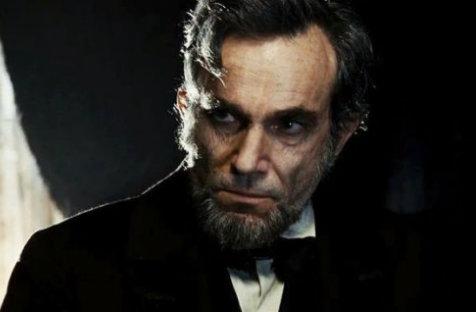In the 148 years since his death, US president Abraham Lincoln has become many things: one of his country’s most venerated heroes, a symbol of intense nationalism, and the yardstick by which all American leaders are measured. Yet the reasons for his idolised status are often lost in the lament over his assassination. In Lincoln, Steven Spielberg explores the personality of the man who became a myth, particularly his Civil War actions in abolishing slavery.
The historical drama takes its cues from Doris Kearns Goodwin’s Team of Rivals: The Political Genius of Abraham Lincoln, a biographical portrait of the president and his cabinet members. And though the eponymous figure earns the film’s primary focus through his momentous choices, his ability to successfully navigate and reconcile competing personalities, agendas and ideologies proves just as fascinating as the sweeping outcome of his nation-changing endeavours.
Set over the space of two short months in 1865, the narrative – adapted by Tony Kushner, re-teaming with his Munich director Spielberg – is driven by Lincoln’s (Daniel Day-Lewis, Nine) fears and fortitude. While his Emancipation Proclamation was issued two years earlier, concerns remained about its ability to withstand judicial scrutiny; with the war continuing to ravage the populace, formally ending slavery through legislative means emerges as the only solution to repair the country.
Lincoln’s Republican Party colleagues are divided, as is his family. Secretary of State William Seward (David Straitharn, The Bourne Legacy) is determined and devious; influential congressman Thaddeus Stevens (Tommy Lee Jones, Hope Springs) struggles with motives and methods; conservative Preston Blair (Hal Holbrook, Water for Elephants) favours discussion and discourse. In the Lincoln household, his wife Mary Todd (Sally Field, The Amazing Spider-Man) proves resolute in her beliefs, even as eldest son Robert (Joseph Gordon-Levitt, Looper) commits himself to the battlefield against his parents’ wishes.
Spielberg’s first film since War Horse sees him return to his intelligent, historical best. The sentimentality and softness that muddied his last effort is replaced with the deft delicacy of Schindler’s List, and the unrelenting tension of Munich. Although the outcome is a matter of record, it is the details which drive the feature: the rationale and reasoning, the drama and debate. Over long conversations, immersive anecdotes and spirited arguments, what unfolds are principle and politics.
While Spielberg’s restraint may surprise given his recent output, as does the film’s modesty, which belies its epic nature, Day-Lewis’ authentic turn in the titular role commands attention. Throughout his significant, albeit sporadic, cinematic career, the actor has always impressed, but never in the stately manner – polite yet imposing, endearing yet devastating – seen in Lincoln. His penchant for physicality remains, just as his movement, expressions and voice are transformed by the character. His interpretation of ‘Honest Abe’ will surely linger as the version of record, so definitive is his performance.
Day-Lewis is supported by an impeccable cast, with Field’s seething and Jones’ conflicted indignation rising to meet the tenor of the lead. In smaller roles, James Spader (TV’s The Office) and John Hawkes (The Sessions) impart levity, just as Lee Pace (The Hobbit: An Unexpected Journey) proves a determined adversary. Their contributions cannot be discounted even in the shadow of their formidable lead, nor can their exquisitely crafted surrounds – the precise lensing of cinematographer Janusz Kaminski (How Do You Know) and the calculated edits of Michael Kahn (The Adventures of Tintin) included. Lincoln, like the man at its core, is about more than the individual; the centrepiece, however, is rousing and riveting.
Rating: 4 stars out of 5
Lincoln
Director: Steven Spielberg
USA, 2012, 150 min
In cinemas February 7
Advance screenings this weekend in select cinemas
Distributor: 20th Century Fox
Rated M
Actors:
Director:
Format:
Country:
Release:





